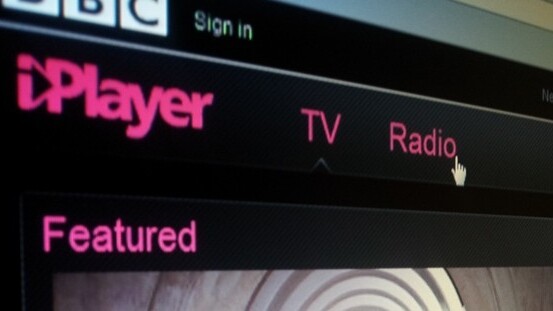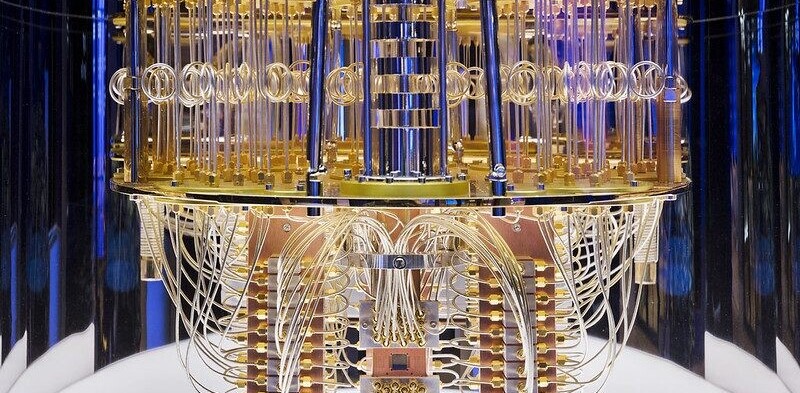
Last week, the word on the street was that the BBC was considering charging users to access archived content on iPlayer.
The proposed new system would mean that iPlayer would still be free for the 7-day catch-up service as it is now, but users would pay a fee to watch content beyond that period. If it ever came to fruition, the ‘micropayment’ would cover costs rather than boost its coffers directly, going towards the rights to make it permanently available.
The Twittersphere temporarily burst into overdrive, with every second tweet relating to the story seemingly mentioning ‘the TV licence fee’. Why should users pay even more for content that should be covered under the compulsory annual fee that UK TV-viewers already have to pay?
@BBC @TheNextWeb @TGW_Paul @thenextwebuk We pay a Licence Fee and now your going to RIP us off for IPLAYER!
— Mark redgwell (@Blackprojects) January 13, 2012
Surely though, the micropayment option to extend the availability of iPlayer beyond a 7-day window is better than increasing the licence fee for everyone?
At any rate, it probably won’t matter as it likely won’t even happen. It was merely talk – just one possible scenario the BBC is considering along with many others. “We never stop future-gazing at the BBC and there are always a number of new ideas under discussion,” said a BBC spokesperson. “Any such ideas would need to be developed in conjunction with the industry and with rights-holders and they would certainly not lead to a two-tier licence fee.”
However, the whole episode served to remind us of one thing. The BBC licence fee is never too far away from conversation, and there seems to be a growing resentment against it.
We live in the 21st century digital age – there’s BSkyB, Virgin Media, Netflix, LoveFilm, Playstation…digital entertainment on tap that consumers are paying through the nose for. And all that before we even get ’round to mentioning Freeview, Freesat and YouTube – there’s more choice than ever.
The BBC TV licence fee for beginners

The BBC TV licence fee was introduced in 1946 at a cost of £2 a year per-household, at a time when you had a handful of TV and radio programmes to choose from. And maybe a gramophone, if you were lucky.
We live in a different age now, and it’s easy to see why people feel a little aggrieved at forking out £145.50 each year – £49 if you’re still watching in black-and-white (seriously) – when they’re already paying for other entertainment products and packages.
If you’re not living in the UK, this may seem a little absurd, but here’s the deal in a nutshell. Everyone in the UK who watches or records TV as it is broadcast needs to be covered by a TV licence. This includes TV on computers, mobile phones, DVD/video recorders and other devices.
The UK Government sets the level of the licence fee, and in January 2007 it was agreed for a six-year period with the amount being approved each year by Parliament. More recently, the Government decided to freeze the licence fee at its 2010 level of £145.50 until the end of the current BBC Charter period in 2016. The licence fee is to pay for a commercial-free BBC, covering TV, Radio and online services. 
But unlike Virgin, Sky, Netflix and such like, nobody has a choice of whether they pay for a TV licence or not. You may never actively watch a BBC programme or visit its website, but you’re sure as hell paying for it if you want to stay on the right side of the law. Even for those that do enjoy BBC content, the ‘lack of choice’ element to the licence fee still gets some people riled:
@TGW_Paul I don’t deny they produce good TV but there should be a choice. Just like you have the choice to choose Sky or Virgin for example.
— Heinrich Ferreira (@heinrichdsf) January 13, 2012
The scourge of individualism: There’s no ‘I’ in iPlayer
But here’s the thing. If you were to give people a choice, many would choose not to pay for it and the BBC as we know it would crumble. However, it’s a public service, just as the NHS, police force and fire brigade are, and it should be preserved.
Nothing grates me more than when someone complains about having to pay taxes for services they never use. Speaking to Q magazine last year, superstar singer Adele said:
“I’m mortified to have to pay 50%! [While] I use the NHS, I can’t use public transport any more. Trains are always late, most state schools are shit, and I’ve gotta give you, like, four million quid – are you having a laugh? When I got my tax bill in from [the album] 19, I was ready to go and buy a gun and randomly open fire.”
There are way too many ‘I’ and ‘my’ references in there. So Adele is rich and doesn’t want to pay for things she doesn’t use? My heart bleeds. The scourge of individualism is growing, and this ‘pull the ladder up and screw the rest’ culture is such a bad omen for society. It’s indicative of a much deeper problem, where people care more about themselves than the success of ‘society’.
Just because the BBC deals in news, entertainment, information and education doesn’t make it any less vital for UK society than a health service. And just because YOU don’t see the value in it doesn’t mean we should scrap it.
The BBC TV licence costs buttons – it’s only £145.50 a year. That’s £2.80 a week per UK household, which is less than the cost of a pint of beer (where I live, at least…). It’s a minor tax, and surely you can forget about that for the greater good? But over and above all this, the BBC offers everyone a little respite from the commercially-driven media that permeates every nook and cranny around the world. In the UK, the BBC is an ad-free zone, and it must remain so.
The BBC: A commercial-free zone
Just about everything we consume these days has a commercial element to it. I can’t remember the exact statistic, but in a 30-minute trip to work, the average commuter is bombarded with something like a thousand different marketing messages. Advertising is everywhere.
The fact that the BBC can survive as a non-commercial entity and produce quality content (yes, that’s what I said ‘quality’) in this day and age, I think is startling. Okay, I know there will be plenty of people spitting out their cornflakes as they read that, but the BBC genuinely does still produce some excellent content, and it’s nowhere near as bad as the cynics of society would have you believe. “Eastenders”, you say? I give you Frozen Planet.
The BBC is a global brand. People tune in to BBC News 24 from around the UK and across the world to get the latest on major global events, and people generally trust what they see and hear on it. If the licence fee was scrapped, the BBC as we know it would be gone forever, and it would become yet another corporate media machine.
So, you may be paying for Sky, Virgin, Netflix…or any number of other digital entertainment services. But just look what £2.80 a week gets you – 8 TV stations plus HD and Red Button, 10 national radios stations and a plethora of regional/local stations, and then there’s BBC Online, iPlayer and Mobile. That’s quite a lot of bang for your buck, even if you only consume BBC content occasionally.
There have been a number of anti-BBC petitions over the years, mainly based on the lack of choice consumers have around the TV licence fee. BBCresistance.com is one, with typical comments including: “why should you pay for something you might not even use,” and “Paying money to the BBC just cause we own a TV? I barely watch TV! I only have one to watch DVDs I buy. It must be against our human rights.” A quick peruse through some of the other comments reveal a very extreme anti-BBC sentiment, with words such as ‘extortion’, ‘abuse’ and ‘rip off’ being tossed around with careless abandon.
If the BBC needs to be reformed, then so be it. If there are people holding office at BBC HQ who are taking the piss, kick them out. But the underlying philosophy is a sound one – an ad-free public service broadcaster that EVERYONE pays for. That must be preserved, and the UK would be much worse off without it.
Get the TNW newsletter
Get the most important tech news in your inbox each week.




